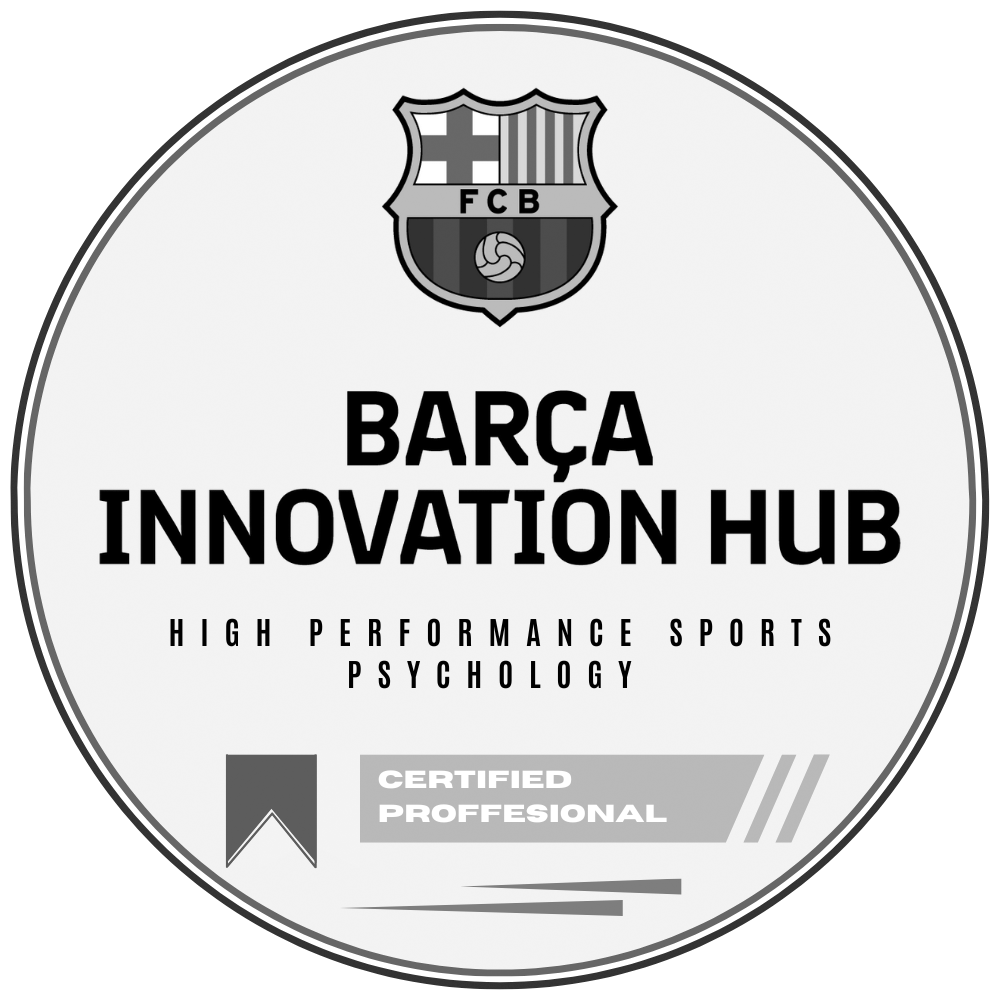Why Mistakes Are the Foundation of Growth
Mistakes are often treated as the opposite of success, something to be avoided, hidden, or minimized. But in my mental performance coaching activities with elite athletes and high-performing teams, I’ve come to see mistakes not just as inevitable but as essential. They aren't simply setbacks. They are feedback. And if we’re paying attention, they can become some of the most valuable moments in our development.
“Success is not final, failure is not fatal: It is the courage to continue that counts.” – Winston Churchill
Mistakes Are Information, Not Identity
I remember working with a talented midfielder who had just botched a critical penalty kick. He was devastated, not just because the team lost, but because he saw the mistake as a reflection of who he was. In our session the next day, we didn’t analyze his footwork right away. We talked about meaning. What story was he telling himself about the miss? That conversation opened the door to technical improvement, but it began with reframing failure itself.
No one enjoys making mistakes. But when they happen (and they will) they become rich sources of insight. An athlete’s miss can highlight where instinct needs refinement. An executive’s oversight can reveal blind spots in the system. Either way, the moment holds up a mirror.
If we shy away from mistakes, we limit our range of growth. As I often tell clients: you don’t have to love the mistake, but you do have to meet it. Learning means staying present long enough to extract the lesson, integrate it, and move forward.
“It is impossible to live without failing at something unless you live so cautiously that you might as well not have lived at all.” – J.K. Rowling
Planning for Failure Is Part of Leading
In a recent leadership retreat with a corporate team, a senior executive shared how her culture had shifted after she introduced scenario planning. Not as a formality, but as a way to normalize challenge. “We stopped pretending we had control,” she said. “Instead, we started preparing for reality.”
She had her teams map out three tracks: the worst-case scenario and how they’d respond, the ideal outcome and how they’d sustain it, and the most likely path with embedded risks and response strategies.
This wasn’t pessimism. It was resilience in action. And it changed how people related to mistakes, not as failures of planning but as expected terrain.
“Our greatest glory is not in never failing, but in rising every time we fail.” – Confucius
Mindset in Motion: What Golf Teaches Us
I once asked a pro golfer how he handles pressure when everything’s on the line. His response was deceptively simple: “I focus on where I want the ball to go, not where I fear it might land.”
That insight isn’t just for golf. It applies to how we frame performance, risk, and failure. When we warn athletes not to hit the water, they often do. Why? Because attention follows instruction. If we frame performance through the lens of avoiding mistakes, the brain tightens. If we frame it through possibility, the brain opens.
This is why mindset work is central to performance, not just the technical game but the internal one.
Unlearning the Fear of Failure
In a coaching conversation with a high-achieving academic, someone who had studied at both Harvard and MIT, he admitted that early in his career, failure felt like a threat to his identity. “I was taught to critique everything, especially myself,” he said. “But over time, I realized curiosity gets me further than self-judgment.”
His shift from criticism to curiosity changed the way he worked, led, and collaborated. That reframing didn’t dilute his ambition. It gave it room to grow.
“Those who dare to fail miserably can achieve greatly.” – John F. Kennedy
The Brain Is Wired for Mistakes, If We Let It Be
Modern neuroscience backs this up. When we make a mistake, the brain releases dopamine—not just for reward, but for learning. That neurochemical signal tells the brain to pay attention, adjust, and adapt.
But that natural learning loop gets short-circuited when the environment is punitive. Instead of curiosity, we trigger shame. Instead of awareness, we trigger defensiveness.
Recognizing this biological truth gives us permission to embrace what we already know deep down. Failure isn’t the opposite of growth; it is the entry point to it.
“It's fine to celebrate success, but it is more important to heed the lessons of failure.” – Bill Gates
The Culture Around Us Shapes the Story We Tell Ourselves
For teams and organizations to truly learn from mistakes, we have to design for it. That means:
- Feedback that’s fearless but kind
- Space to debrief without blame
- Leaders who model fallibility, not perfection
Some of the most adaptive, innovative teams I’ve seen have rituals around this. They run “failure forums” or “post-mortems” that are truly reflective, not performative. They celebrate learning, not just winning.
Because if you punish mistakes, you don’t eliminate them. You just drive them underground.
Closing Thought: From Fear to Fuel
How we relate to failure is shaped by experience, culture, and belief, but it can be reshaped. And in high-performance environments, that shift is not optional. It is foundational.
Mistakes will happen. The question is: what will we do with them?
Mistakes aren’t the end of the story. Often, they’re the moment the real story begins.

#GrowthMindset #LearningFromFailure #MentalStrength #PerformanceCoaching #HighPerformanceTeams #LeadershipDevelopment #Resilience #MindsetShift #MistakesAreLessons #CourageToGrow



.svg.png)










.png)


